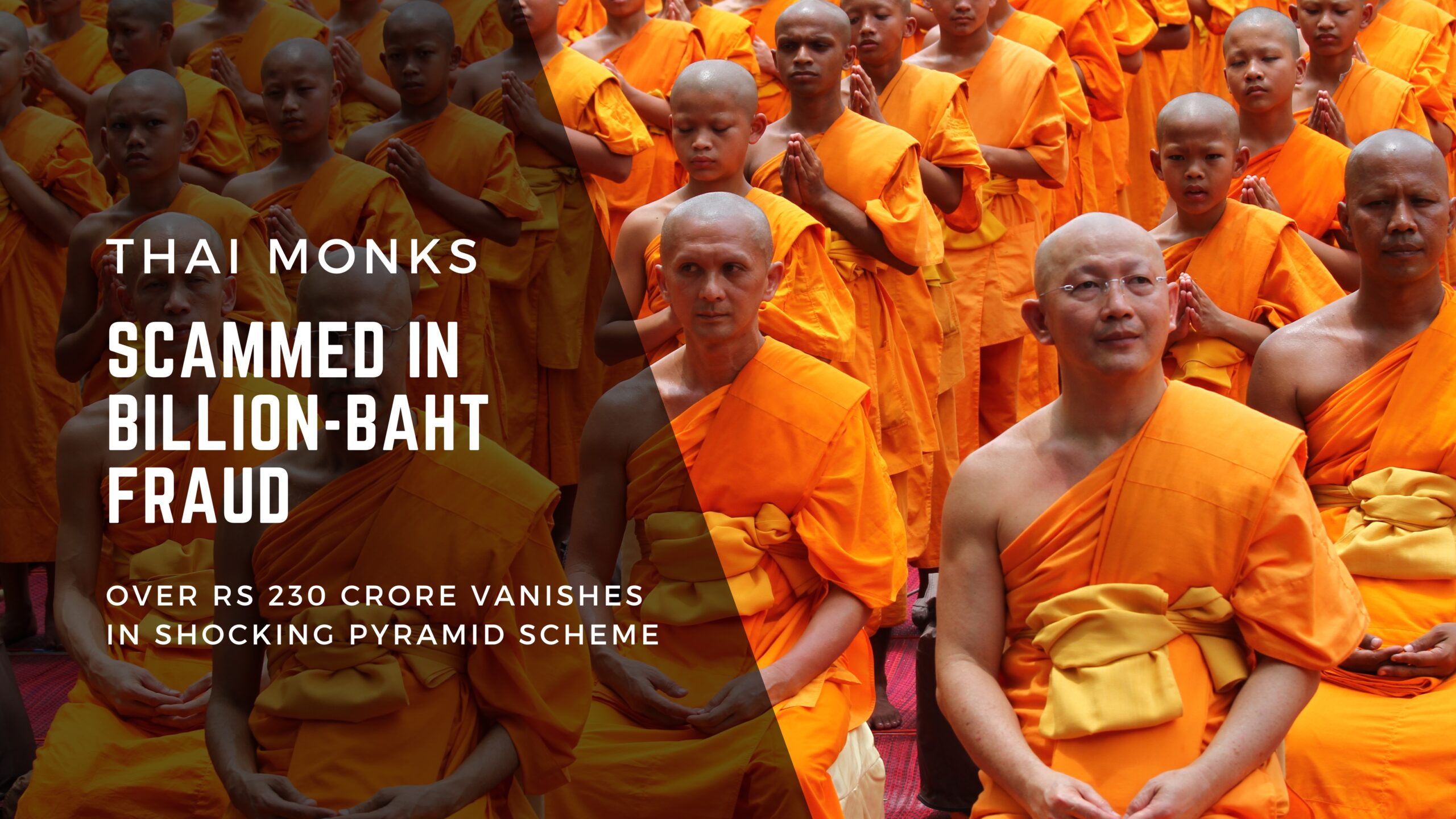A Wake-Up Call for Financial Vigilance

A shocking financial scam has come to light in Thailand, where a billion-baht pyramid scheme called “Ban Share Nong Carrot” targeted monks and villagers. Over INR 230 crore was lost in this fraudulent scheme, raising alarms about financial fraud within religious communities. The scam operated by luring individuals to invest in fake stock trading opportunities, promising substantial returns. The National Office of Buddhism (NOB) is investigating the involvement of monks, while police are focusing on legal violations.
The Scheme Unfolds
The scam first came to public attention when the popular Facebook page “E-Sor Khayee Khao” revealed the fraudulent activities. The company behind the scheme organized seminars and training sessions to convince monks and villagers to invest a minimum of 300,000 baht (approximately INR 6.9 lakh) and recruit others to join the network. The company promised participants substantial monthly profits and provided fake trading platforms and tactics through a LINE group.
One victim shared how, during financial and health difficulties, they sold their last remaining land and invested 316,000 baht (around INR 7.3 lakh), expecting monthly returns of 10,000 to 20,000 baht (INR 23,000 to 46,000). Unfortunately, the company soon halted withdrawals, claiming losses, and urged members to invest more to recover. By June 2023, no one had received any returns, and many frustrated victims, including monks, sought help from Thailand’s Department of Special Investigation (DSI).
Next Steps: NOB Investigation and Legal Action
As the NOB investigates how the scheme impacted monks, questions are emerging about how such a large-scale fraud managed to infiltrate religious circles. Mr. Chousak Sirinil, Minister for the Prime Minister’s Office, has emphasized that any violations of monastic discipline will be handled by the clergy, while police focus on legal aspects. The NOB and law enforcement now face growing pressure to act swiftly to prevent further exploitation of religious and vulnerable communities.
Impact and Lessons
The Ban Share Nong Carrot scheme has exposed the growing threat of fraudulent schemes targeting unsuspecting citizens, including monks. The sheer scale of the scam, and its impact on religious figures, has drawn widespread attention and criticism. Many are now calling for stricter regulations and better oversight to prevent similar incidents in the future.
The victims, many of whom are already struggling with financial and health challenges, are left hoping for legal intervention to recover their investments and hold the perpetrators accountable. This scandal highlights the importance of financial vigilance, particularly for vulnerable communities, and raises questions about the effectiveness of existing protections against scams.
Cyber Gita Perspective
At Cyber Gita, we believe that incidents like this demonstrate the critical need for greater financial awareness and cybersecurity education. Scammers thrive on a lack of knowledge, and with the rise of online financial fraud, it’s more important than ever for individuals and communities to be equipped with the tools to recognize and avoid such schemes.
By promoting cybersecurity literacy and vigilance, we can help protect religious communities, individuals, and organizations from falling victim to these fraudulent schemes. Let this scandal be a wake-up call to reinforce financial protections and ensure that no one, regardless of their status or background, becomes a victim of fraud.
This tragic case serves as a reminder of the dangers of investment scams and highlights the importance of cybersecurity in today’s interconnected world. Cyber Gita is committed to spreading awareness and providing training to safeguard individuals and organizations from the growing threat of financial fraud.
